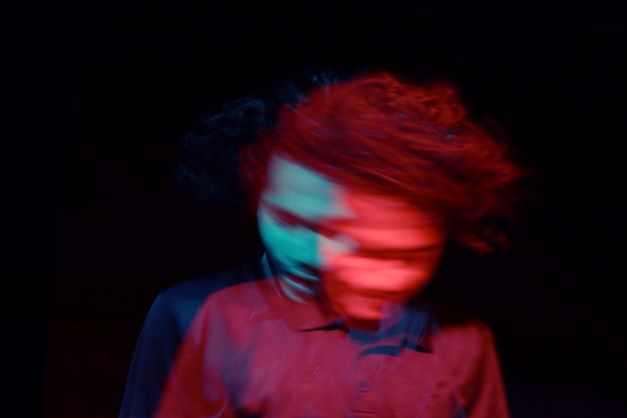With 70 clinical studies assessing psychedelics for mental health treatment, researchers downplay harms, at odds with lived experience reported online.
Renewed research to assess the potential use of hallucinogenic drugs for psychedelic-assisted psychotherapy finds a number of researchers ignoring or expressing little concern over the adverse psychological effects of the drugs that range from short-term “bad trips” to recurring perceptual distortions, or “flashbacks,” to the long-lasting condition of persistent psychosis.
Hallucinogens are powerful psychoactive substances that cause profound distortions in a person’s perceptions of reality, which can be accompanied by impaired judgment, anxiety, depression, and extreme mood changes including psychosis.

The National Institute on Drug Abuse (NIDA) warns that hallucinogens “can disrupt a person’s ability to think and communicate rationally, or even to recognize reality, sometimes resulting in bizarre or dangerous behavior.” NIDA also states that “hallucinogenic drugs are associated with psychotic-like episodes that can occur long after a person has taken the drug.”
However, some psychedelics researchers have reported that psychological adverse effects are of short duration or rarely happen, and that dangerous behavior leading to suicide or accidental death under the influence of psychedelics is thought to be extremely rare.
This tame characterization of psychedelics is at odds with the lived experience expressed in readers’ online comments on a recent New York Times article by health and science reporter Andrew Jacobs on a coming “psychedelics revolution.” While the readers’ comments are anecdotal, they challenge claims that adverse reactions to hallucinogens are rare or short-lived.
“There is no doubt LSD and other hallucinogens cause psychotic breaks. The use of hallucinogens in so-called treatment is not new, but was discarded decades ago because of repeated disasters.”
–Psychiatrist Peter Breggin, M.D.
Concerning “bad trips” and other acute adverse effects, here are some of the readers’ comments, edited for brevity:
- “Four years ago there was a ‘thump, thump, thump’ overhead. At the bottom of a steep incline was a young man wearing only one sock. He had climbed up onto our roof via a carport, ran over and jumped off. While he was fairly incoherent, he did mention LSD and a ‘bad trip, man.’”
- “A student I knew took some LSD, thought he could fly down a staircase, tried to and broke his neck and died.”
- “I had a bad hallucinating LSD trip. I never did drugs again. The most frightening experience of my life. Very traumatizing even decades later in the recounting.”
- “I suffered a horrific experience using LSD. My fear is I could go down a terror-filled rabbit hole once again.”
- “My brother had a very bad trip. He believed the telephone booth he was in was melting and he ran screaming down the street.”
- “While tripping on LSD, my sister walked on the rails of the elevated subway and [was] saved by a [police officer]. My neighbor nearly burned his house down while tripping.”
Readers reported long-lasting adverse effects:
- “I had a real bad time with LSD, taking it for the first and last time. My experience was frightening. The effect was periodic panic attacks for a couple of years.”
- “My casual use of LSD deepened my depression.”
- “The [LSD] unlocked a door that transformed my previously depressive self into a sleepless, [schizophrenic], manic psychotic, complete with hallucinations and delusions. That went on for six weeks or so and included hospitalization, lithium and antipsychotic [drugs].”
Concerning persistent psychosis, readers wrote:
- “My brother, who had taken [LSD] many times before, was given a massive overdose and spent the rest of his short life insane.”
- “I knew a couple of college-age students back in the 60s who ‘crashed’ badly [after taking hallucinogens], were hospitalized, never came out of it.”
- “[I have] several friends who ended up in mental hospitals thanks to the ‘healing’ power of hallucinogens.”
- “My best friend from high school became schizophrenic after taking psychedelic drugs.”
- “I was a stable person, but after using [psychedelic drugs], I became sporadically psychotic. I was in and out of psych wards. I started hearing voices constantly. I thought suicide was inevitable. Instead, I stopped doing the drugs. Now I’m sane, healthy, happy.”
Two readers reported incidents of violent or self-destructive behavior in reaction to psychedelics:
- “An acquaintance had a psychotic episode after periodic use of LSD. She attacked someone with a pair of scissors.”
- “My brother took a massive amount of [psilocybin] mushrooms three years ago, which induced mania. He continued to take mushrooms and took his life in January 2021.”
Psychiatrist Peter Breggin understands the dangerous effects of LSD use. “Having lived through the 1960s and witnessed directly the effects of LSD and other hallucinogens on essentially normal people, there is no doubt this causes psychotic breaks often leading to prolonged emotional disturbance,” he said, adding, “the use of [hallucinogens] in so-called treatment is not new, but was discarded decades ago because of repeated disasters.”
Psychedelic-assisted psychotherapy comes as a hoped-for solution to what one psychedelics researcher aptly called the triple crisis in psychiatry: the lack of validity in psychiatric diagnosis, the lack of understanding of the cause or development of mental disorders, and a halt in the research and development of the psychotropic drugs that are psychiatrists’ primary mode of treatment.
Meanwhile, in an attempt to save the field of psychiatry from its failure, human lives and sanity are being put at risk of the unpredictable and dangerous effects of psychedelics in clinical trials. As a mental health industry watchdog, Citizens Commission on Human Rights (CCHR) continues to warn the public about these risks.
